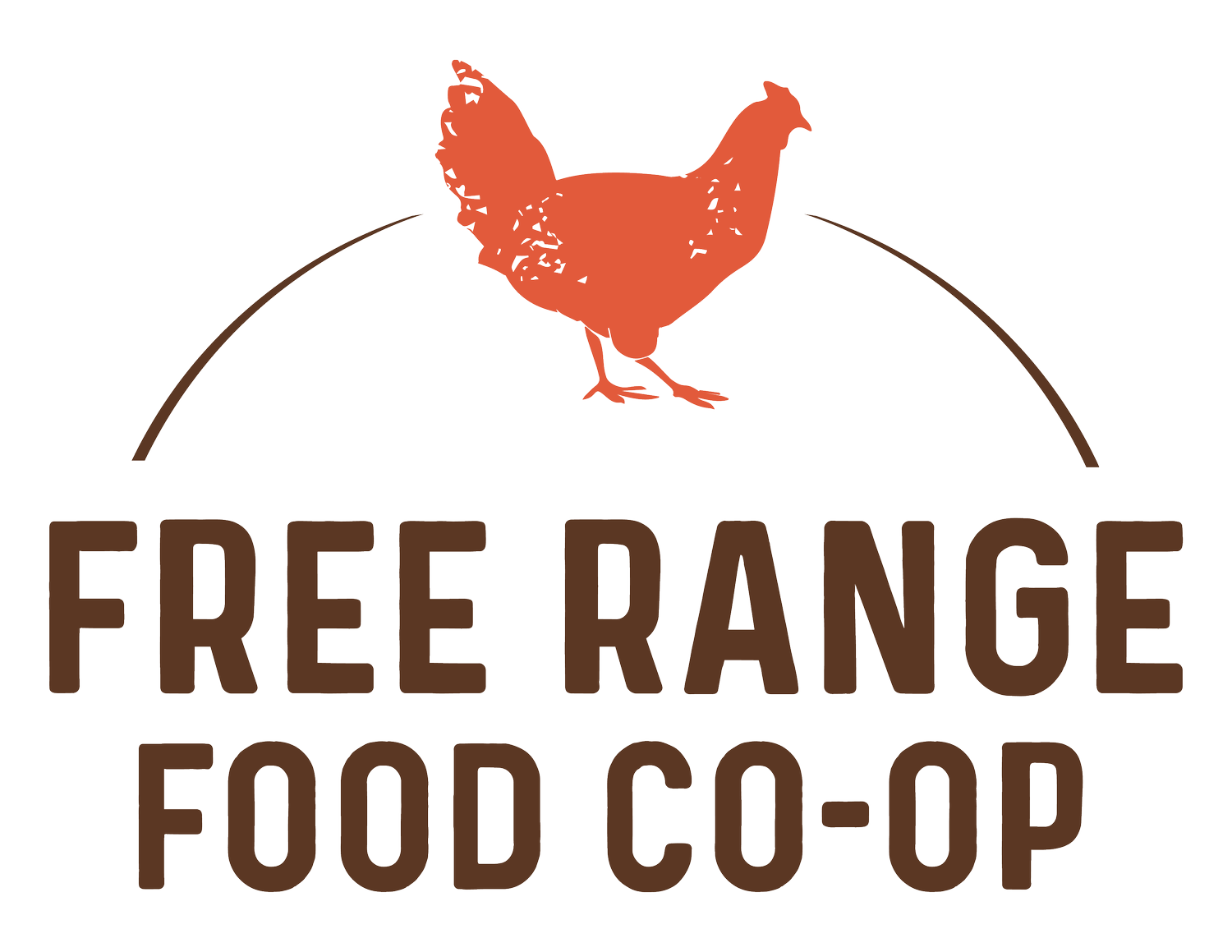
About Free Range Food Co-op
In October 2015, a small group of community members came together to talk about the possibility of developing a food co-op in the Grand Rapids area. From the beginning, the mission at the forefront of the conversation was how to strengthen the local food system and better support local growers and producers. During the process, the group has evolved from a handful of people just trying to wrap their minds around how to even begin, to an incorporated entity with over 1,000 owners and a growing organizing team.
Our food co-op is being built by the community, for the community. A volunteer board of directors and organizing team are completing the business tasks in addition to community outreach in order to raise awareness to the co-op and build ownership. FRFC is working closely with Food Co-op Initiative, which is a non-profit organization whose sole mission is to help advise, mentor and offer resources to start-up food co-ops.
We are following a development timeline that includes five stages that lay out both the critical tasks and ownership goals that must be completed before we move on to the next stage. Because of the volunteer structure and the necessity to have community support and ownership, the development process for starting a modern co-op can take 8-10 years, or more.
Our Mission
Free Range Food Co-op is a cooperatively-owned grocery store committed to community well-being through access to local, wholesome, organic foods and goods.
Our Vision
Because of Us:
We have a thriving, cooperatively-owned grocery store which welcomes everyone and cultivates relationships with people in Itasca County and beyond.
We have engaged and involved owners who actively work to strengthen the co-op through cooperative ownership and collaboration.
We have a growing, resilient, regional food system through direct support to local growers and producers.
Our community has a leader that models and promotes sustainable business practices and environmental stewardship.
We have a welcoming space where people come together to share ideas, learn, and empower each other through education and cooperation.
The Cooperative Values
All cooperatives are based on the values of:
Self-help
Self-responsibility
Democracy
Equality
Equity
Solidarity
Honesty
Openness
Social Responsibility
Caring for Others
The Cooperative Principles
All cooperatives follow a set of universal principles known as the Seven Cooperative Principles. Ours is no different! These principles are a set of guidelines by which cooperatives put their values into practice within their communities.
VOLUNTARY & OPEN MEMBERSHIP
Cooperatives are voluntary organizations open to all persons able to use their services and willing to accept the responsibilities of membership, without gender, social, racial, political, or religious discrimination.
DEMOCRATIC MEMBER CONTROL
Cooperatives are democratic organizations controlled by their members, who actively participate in setting policies and making decisions. Men and women serving as elected representatives are accountable to the membership. Members have equal voting rights - one member, one vote.
MEMBER ECONOMIC PARTICIPATION
Members contribute equitably to, and democratically control the capital of their cooperative. At least part of that capital is usually the common property of the cooperative. Members usually receive limited compensation, if any, on capital subscribed as a condition of membership. Members allocate surpluses for any or all of the following purposes: developing their cooperative, setting up reserves, benefiting members in proportion to their transactions with the cooperative, and supporting other activities approved by the membership.
AUTONOMY & INDEPENDENCE
Cooperatives are autonomous, self-help organizations controlled by their members. If they enter into agreements with other organizations, including governments, or raise capital from external sources, they do so on terms that ensure democratic control by their members and maintain their cooperative autonomy.
EDUCATION, TRAINING & INFORMATION
Cooperatives provide education and training for their members, elected representatives, managers, and employees so they can contribute effectively to the development of their cooperatives. They inform the general public about the nature and benefits of cooperation.
COOPERATION AMONG COOPERATIVES
Cooperatives serve their members most effectively and strengthen the cooperative movement by working together through local, national, regional and international structures.
CONCERN FOR COMMUNITY
Cooperatives work for the sustainable development of their communities through policies approved by their members.
